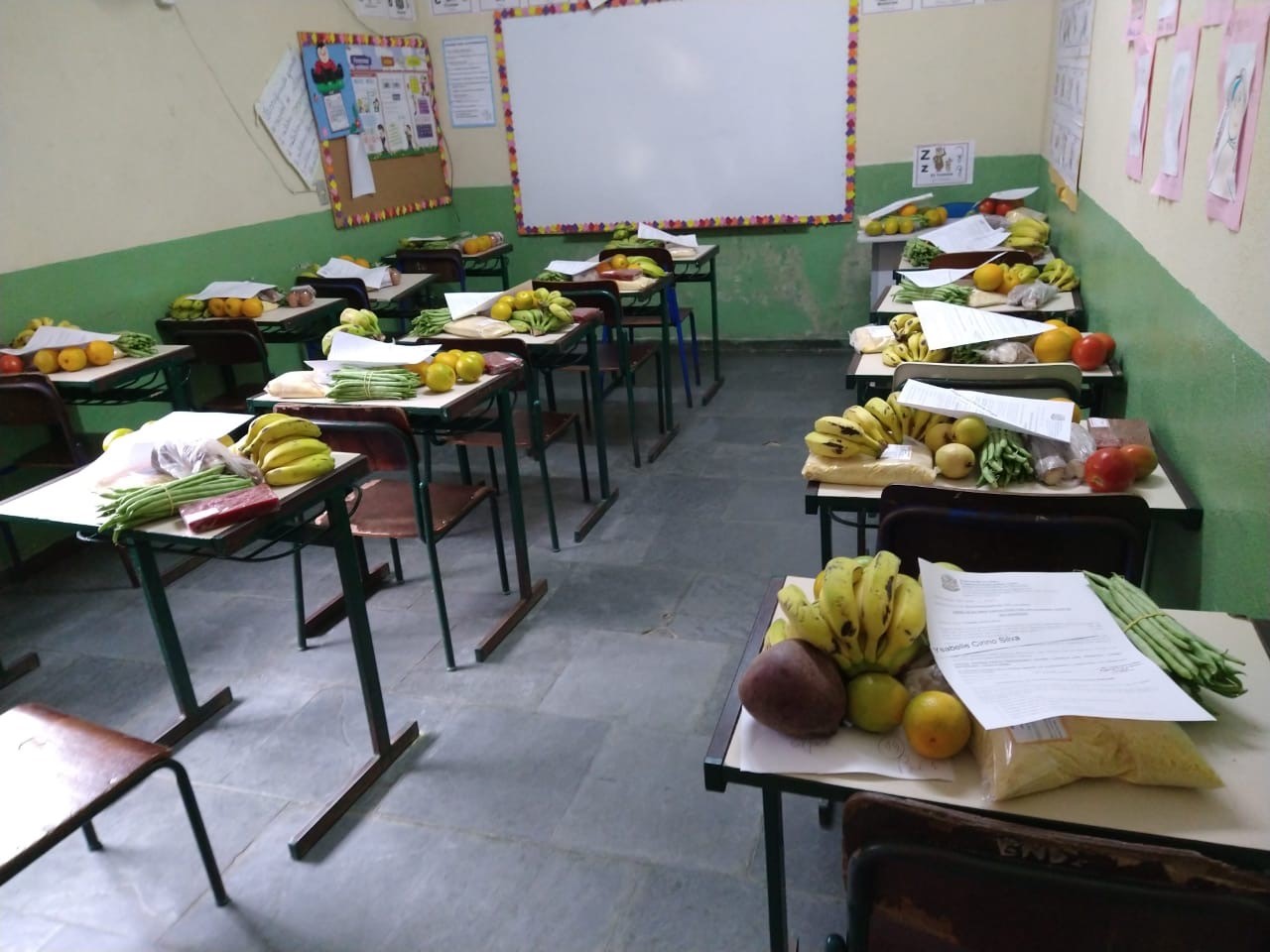
The Covid-19 pandemic accelerated the process of food and nutritional insecurity, which was already deteriorating in several regions of the world. According to Daniel Balaban, Director of the WFP Centre of Excellence against Hunger Brazil, countries now need to create public policies to respond to the emergency, so that the number of people in food and nutritional insecurity does not increase. An aggravating factor is the difficulty that people with informal jobs have to find another form of income, which has a significant impact on access to food. “Now is the time to save lives, it is important for the State to adopt public policies such as basic income,” said Daniel Balaban.
Daniel Balaban and Rafael Zavala, FAO Representative in Brazil, discussed possible solutions to the risks that the Covid-19 pandemic brings to food and nutrition security in a live event promoted by Colli Books on Saturday, June 20th. The event was also attended by Flávia Cordeiro, nutritionist at the Municipal Secretariat of Education in Bom Jardim (RJ), and Najla Veloso, FAO’s regional school feeding coordinator for Latin America and the Caribbean.
During the event, the director also recalled that Brazil has already made considerable progress in structuring public policies such as the National School Feeding Programme (PNAE) and the Food Acquisition Programme (PAA). “Brazil is a country that has very strong institutions and has managed to organize the systems over the years. Today, with the crisis, some sectors are not managing to carry on”, he warned. He recalled that smallholder farmers are at the heart of Brazilian food production: 70% of what is consumed in the country comes from this type of production. But, due to the pandemic, farmers have been struggling to sell products. The decision of the federal government to authorize the continuation of purchases from smallholder farmers to supply food to schools is considered an important measure to guarantee the demand for this type of production.

Assembly of school feeding kits at José Luís Erthal municipal school, in Bom Jardim (RJ). Photo: Márcia Costa.
School meals: the example of Bom Jardim
Flávia Cordeiro, technical nutritionist at the Municipal Secretariat of Education in Bom Jardim (RJ), shared the experience of the municipality in the purchase and delivery of food baskets to the nearly two thousand students enrolled in the José Luís erthal and Washington Emerich public schools. The work, coordinated jointly with education secretary Grasiele Beltrão and nutritionist Márcia Costa, mobilized 16 smallholder farmers in the region to assemble the kits with around 18 items each. The food was transported by a pickup truck and two school buses so that both schools could receive the items on the same day. “When assembling the kits, we respected the nutritional composition, including fruit, vegetables, and artisanal foods,” said Flávia.
The schools contacted parents via telephone and WhatsApp and a delivery schedule was set up to avoid overcrowding. “We have also prepared a delivery note with information on hygiene, cleaning and food preservation, as well as guidelines for the hygiene of non-perishable kits and hand hygiene”.
The “Food Security and Agenda 2030 in Covid-19 Times” event was presented by writer and journalist Isa Colli, with the support from journalists Tais Faccioli and Eliane de Santos.





